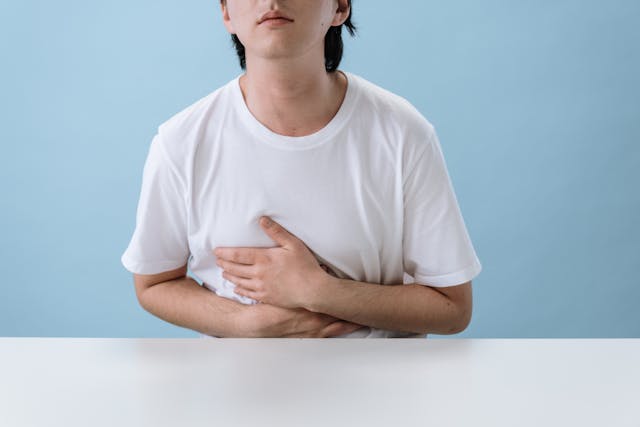CALL TODAY 646-846-1136 | EMAIL
Digestive Disorders and General Surgery: Treatment Options and Success Stories
What are some examples of digestive disorders and general surgery that can treat them? Digestive disorders can significantly impact a person’s quality of life, leading to symptoms like pain, discomfort, and difficulty with nutrition and digestion. While many digestive conditions can be managed with medication and lifestyle changes, some require surgical intervention to resolve the underlying issue and improve overall health. Advances in general surgery have allowed for more effective and less invasive treatment options, offering patients relief from chronic symptoms and a chance at a healthier, symptom-free life.
In this article, we will explore the most common digestive disorders that require surgical intervention, the treatment options available, and some success stories that illustrate the life-changing impact of general surgery.

Common Digestive Disorders Requiring Surgery
Digestive disorders are varied in their origin and severity. Here are some of the most common conditions that may necessitate surgical treatment:
1. Gallbladder Disease
Gallbladder disease, particularly the presence of gallstones, is a common digestive issue. Gallstones can block the bile ducts, causing intense pain and inflammation, a condition known as cholecystitis. In many cases, the best course of treatment is gallbladder removal surgery, or cholecystectomy, to prevent recurrent symptoms and complications.
Success Story Example
A 45-year-old patient experienced chronic pain after meals due to gallstones. After a minimally invasive laparoscopic cholecystectomy, she was able to return to her daily activities without pain and maintain a normal diet.
2. Gastroesophageal Reflux Disease (GERD)
GERD occurs when stomach acid frequently backs up into the esophagus, causing discomfort and, over time, damage to the esophageal lining. For patients whose GERD is not managed with medication, surgery may be necessary. Fundoplication, where the top part of the stomach is wrapped around the lower esophagus, strengthens the valve between the esophagus and stomach, reducing reflux.
Success Story Example
A young professional in her 30s struggled with acid reflux that affected her sleep and daily functioning. After undergoing laparoscopic fundoplication, her symptoms were completely resolved, and she no longer required daily medication.
3. Hernias
A hernia occurs when an organ pushes through a weakened area in the muscle or tissue, often in the abdominal wall. In some cases, hernias can cause pain, obstruction, or other serious complications. Surgery is the definitive treatment for hernias, particularly inguinal hernias, which occur in the groin. Hernia repairs can be performed via open surgery or using minimally invasive laparoscopic techniques.
Success Story Example
A patient with a recurrent inguinal hernia that limited his ability to exercise underwent robotic-assisted hernia repair. The surgery allowed him to recover faster, and within weeks he was back to his normal workout routine, free of pain and discomfort.
4. Crohn’s Disease and Ulcerative Colitis
Crohn’s disease and ulcerative colitis are inflammatory bowel diseases (IBD) that cause inflammation in the digestive tract. In severe cases, these conditions can lead to complications such as bowel obstructions, perforations, or the development of fistulas. Surgery, such as bowel resection, may be required to remove damaged portions of the intestine and restore normal digestive function.
Success Story Example
A 28-year-old woman with severe Crohn’s disease underwent a bowel resection after multiple hospitalizations due to obstructions. Post-surgery, she reported a dramatic improvement in her quality of life and was able to achieve remission, maintaining an active lifestyle without flare-ups.

5. Diverticulitis
Diverticulitis occurs when small, bulging pouches (diverticula) in the colon become inflamed or infected. Mild cases can be managed with antibiotics, but recurring or severe cases may require surgery. Colectomy, the removal of the affected portion of the colon, is often performed to prevent future episodes of diverticulitis.
Success Story Example
After years of battling recurrent diverticulitis, a patient opted for elective surgery to remove the affected section of the colon. Following the surgery, he remained symptom-free and was able to enjoy a fiber-rich diet without fear of future flare-ups.
Minimally Invasive Surgical Techniques
One of the greatest advancements in general surgery has been the development of minimally invasive techniques. Procedures such as laparoscopy and robotic-assisted surgery have transformed how many digestive disorders are treated, offering patients significant benefits, including:
- Smaller incisions
- Less pain
- Reduced risk of infection
- Faster recovery times
- Minimal scarring
These techniques are particularly beneficial for surgeries involving the gastrointestinal tract, as they allow surgeons to perform complex operations with precision, while minimizing trauma to the surrounding tissues.
The Importance of Early Surgical Intervention
For many digestive disorders, early surgical intervention can prevent complications and improve outcomes. Delaying surgery in cases of severe GERD, gallbladder disease, or inflammatory bowel disease can lead to worsened symptoms, more complex surgeries, and prolonged recovery periods. Consulting with a general surgeon early in the course of the disease can provide patients with a comprehensive understanding of their condition and treatment options, including whether surgery is the best choice.
Post-Surgical Recovery and Success
The recovery process after general surgery for digestive disorders depends on the complexity of the procedure and the individual’s overall health. Minimally invasive procedures typically allow for shorter hospital stays and faster recovery times. Many patients are able to return to normal activities within a few weeks, and dietary restrictions are usually temporary.
A key component of post-surgical recovery is follow-up care, where patients may receive dietary advice, exercise recommendations, and guidance on managing any lingering symptoms. With appropriate surgical intervention and recovery support, many patients experience significant improvements in their quality of life, often returning to a normal routine free of pain and discomfort.
Digestive Disorders and General Surgery: Conclusion
Digestive disorders can have a profound impact on a person’s well-being, but with the right surgical treatment, patients can regain control of their health and experience long-lasting relief. From minimally invasive techniques for GERD and gallbladder disease to complex surgeries for conditions like Crohn’s disease and esophageal cancer, modern general surgery offers a range of effective treatment options.
If you’re considering surgery for a digestive disorder, consult with a team of highly trained general surgeons who specialize in these procedures to explore the best treatment options for your specific condition.
Contact Lenox Hill Minimally Invasive Surgery today to schedule a consultation and learn more about how their expertise can help you on the path to recovery.
Contact Information
LENOX HILL MINIMALLY INVASIVE SURGERY
117 E 77th Street
Suite 1A
New York, NY 10075
646-846-1136

